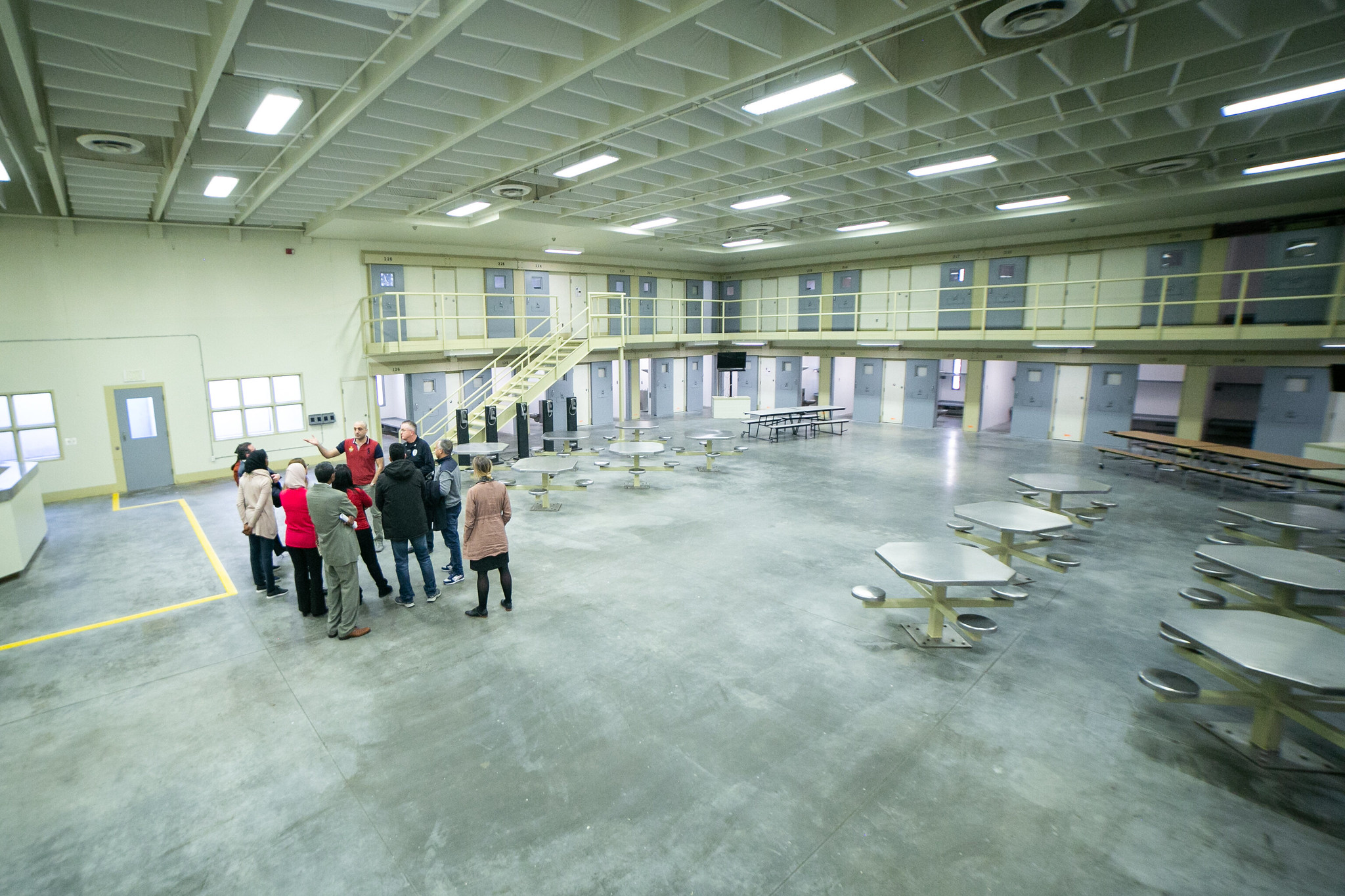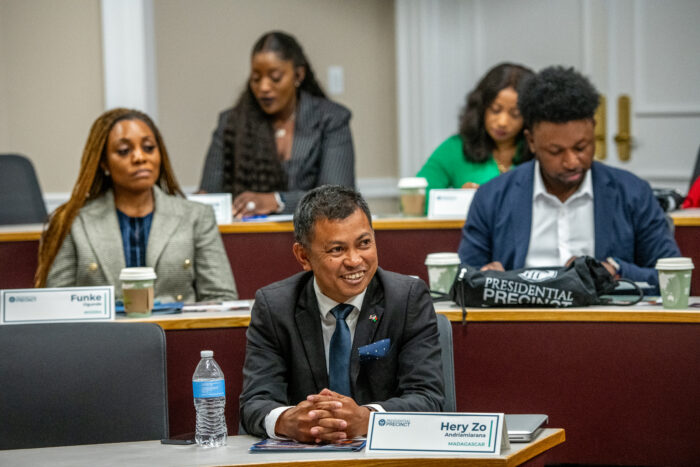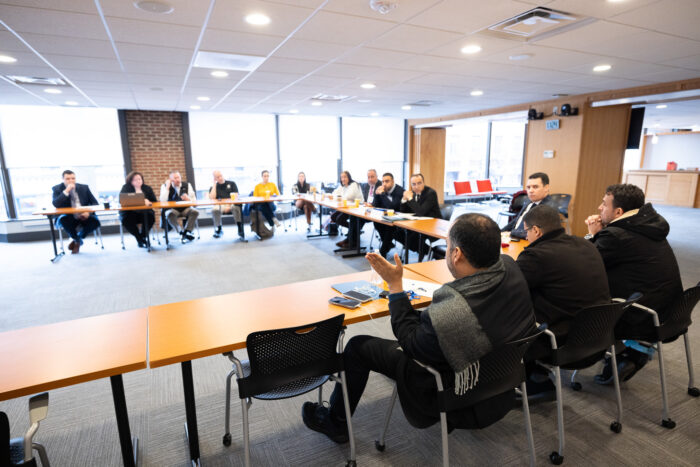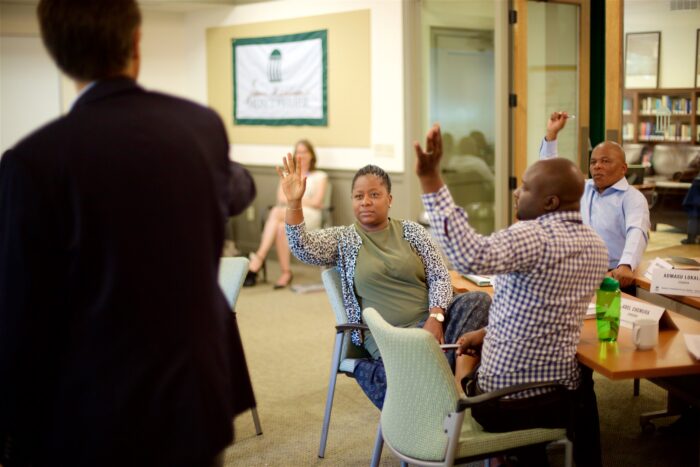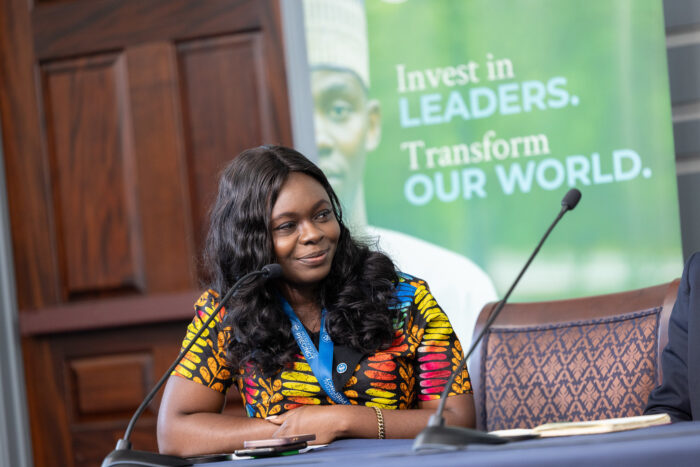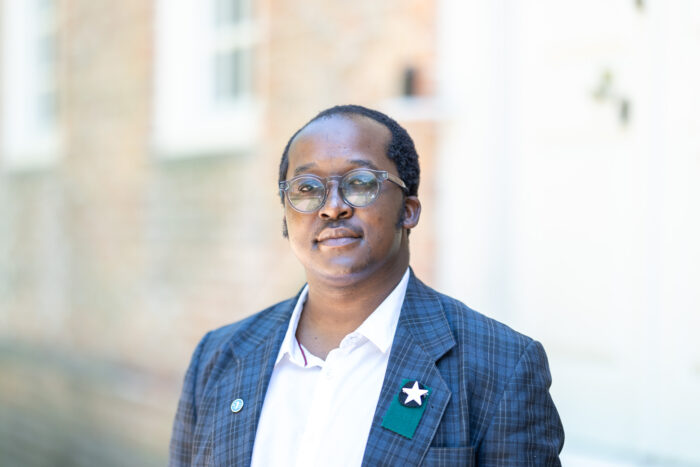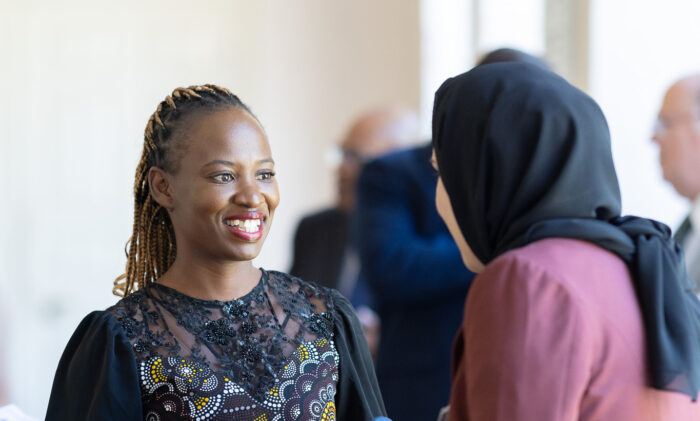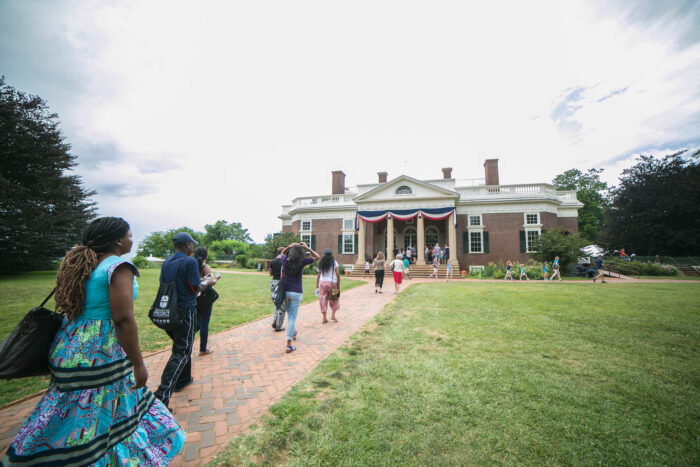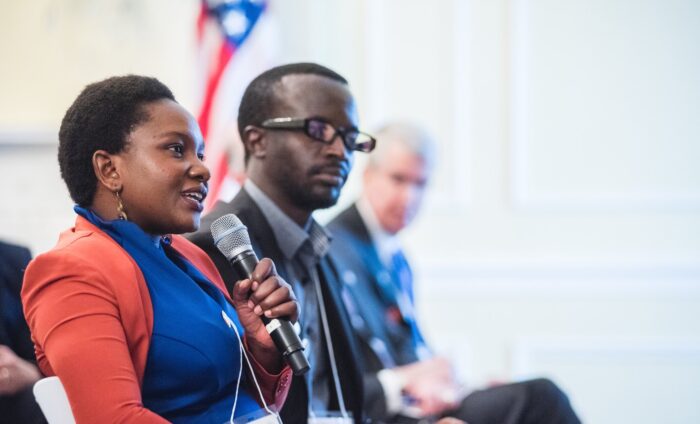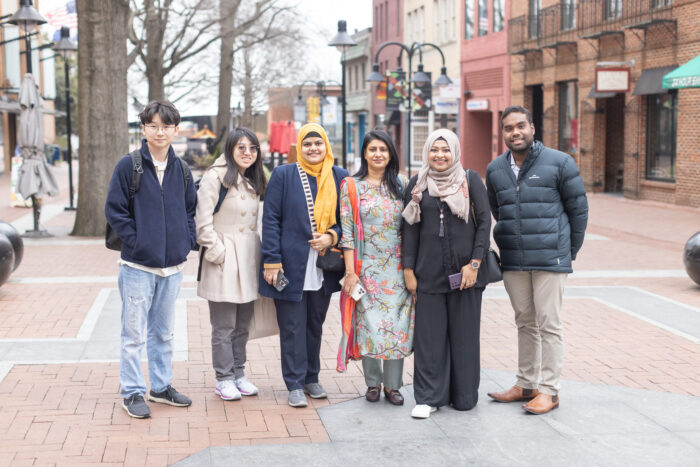As one of the Precinct’s six core focus areas, Human Rights & Justice draws careful attention to the imperative role of a community’s judicial system at national and local scales. Many of our program participants are working to build effective legal systems from the inside out, while others, in a myriad of capacities, have committed their lives to ensuring a fundamental right of access to such systems in the first place.
As we continue this year’s celebration of 80 years of the International Visitor Leadership Program (IVLP), our partnerships in Williamsburg, Virginia are stronger than ever, offering a diverse community of voices with a bold commitment to rule of law around our world. The Williamsburg community speaks from nearly 400 years of experience in edifying legal scholars from around the world, making it an invaluable hub here in the birthplace of modern democracy.
This month, seven visitors representing legal systems across the Middle East joined us in Williamsburg as part of their IVLP. Their program, designed in partnership with Graduate School USA, was built to examine the U.S. commitment to promoting transparency, ethics, and judicial independence in a democracy.
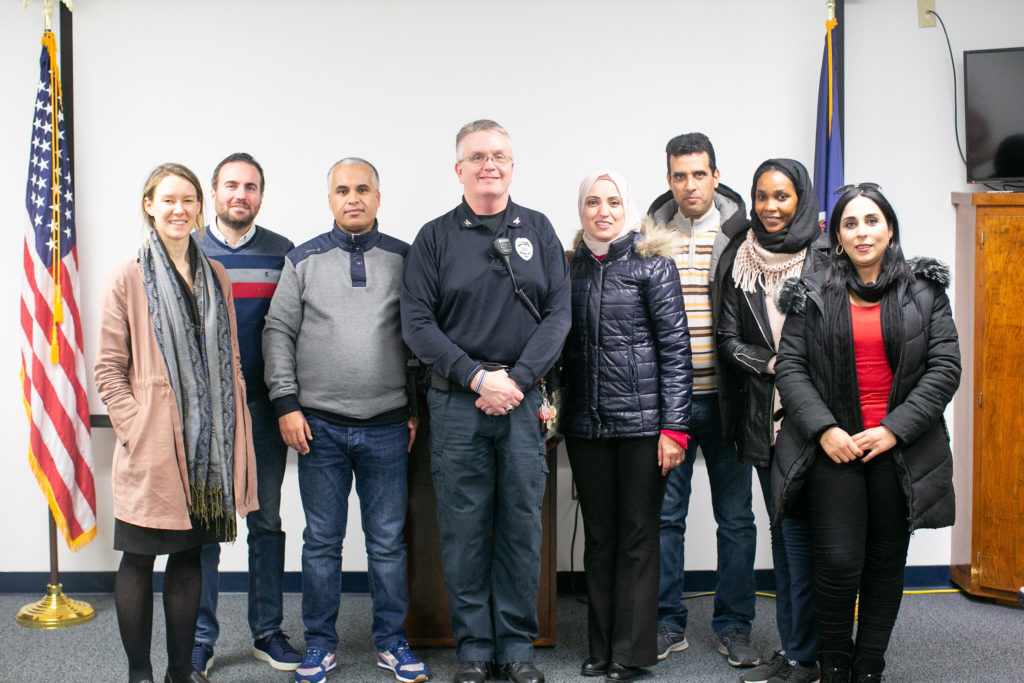
The visitors’ time in Williamsburg began with Sean Dunn, Chief of Police, and Susan Galvin, Deputy Chief of Police for the City. Looking ahead to a day of site-visits spanning across the legal system, visitors quizzed Chief Dunn with a series of questions about the relationship between his department, the jail system, the Magistrate, and private attorneys. ‘What ensures the balance of power?’ ‘How are the rights of the accused protected?’ ‘How do local and federal law enforcement cooperate when needed?’ Common practices and distinct differences were both quickly discovered across cultural contexts.
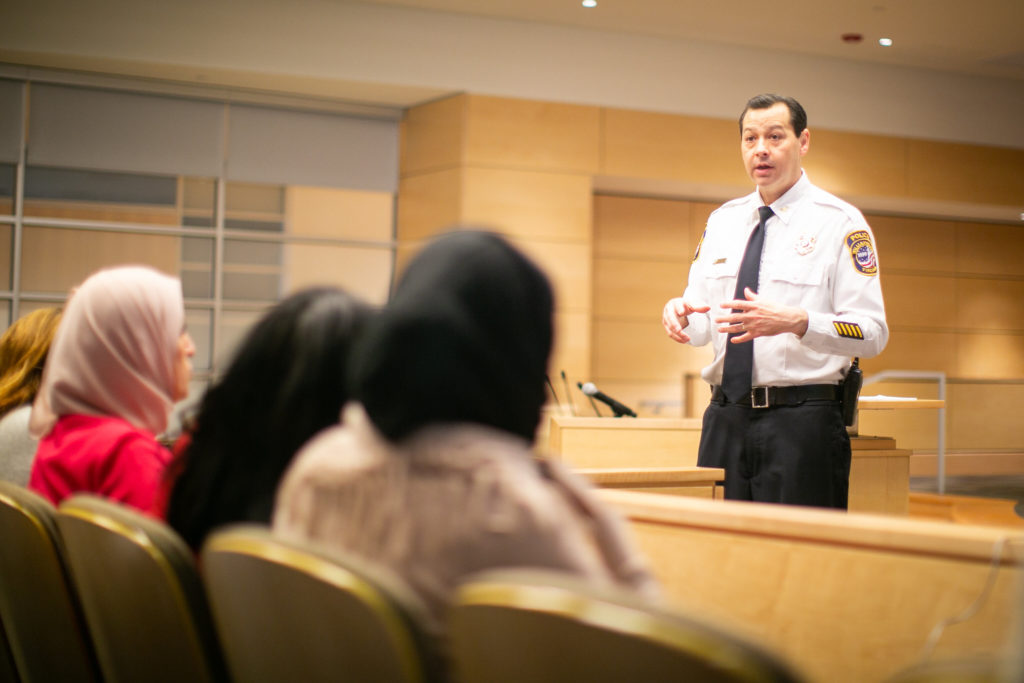
Though questions could have continued well into the afternoon, Chief Dunn and Deputy Chief Galvin welcomed visitors out to the Department’s parking lot for a different method of teaching. In conversation, they expressed pride in the Department’s emphasis on non-lethal methods of law enforcement, emphasizing their mandate to protect and serve all community members in the safest way possible. Visitors had the opportunity to test talcum powder bullets and electric taser charges – both standard lines of defense for Williamsburg officers.
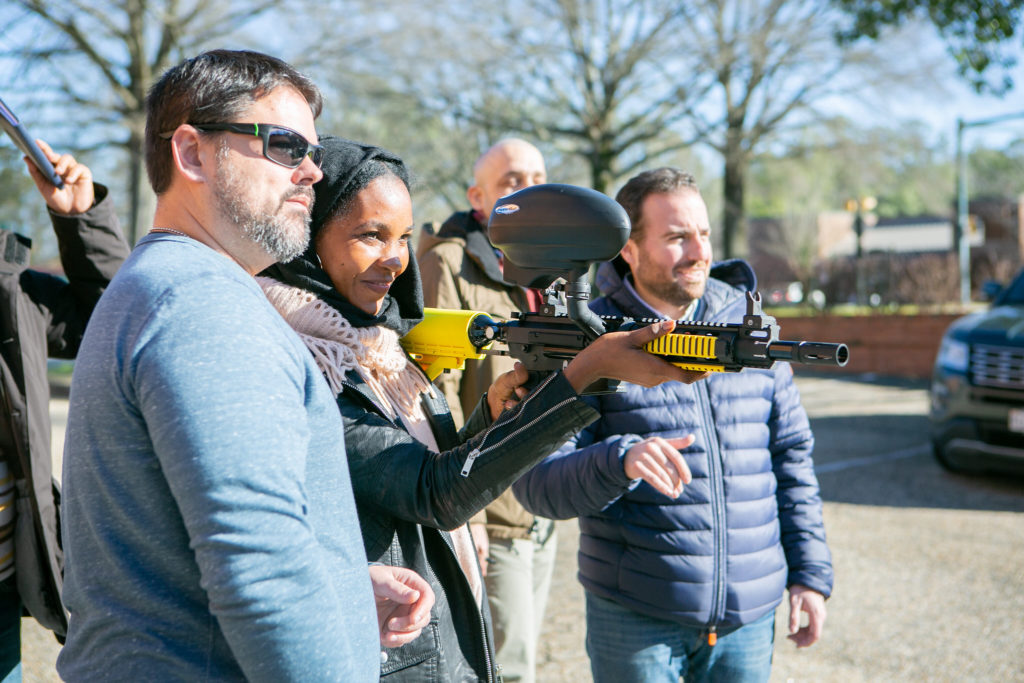
Following a generous morning with the Police Department, visitors moved across town to the Virginia Peninsula Regional Jail to meet with Superintendent Colonel Roy Witham to discuss the jail’s role in preserving due process through specific rights for inmates and right to a timely and fair trial. Their full tour included access to an inmate holding block, overview of in-jail medical care, and discussion of the jail’s role in promoting a law-abiding future for inmates (read the full press release from the Virginia Peninsula Regional Jail).
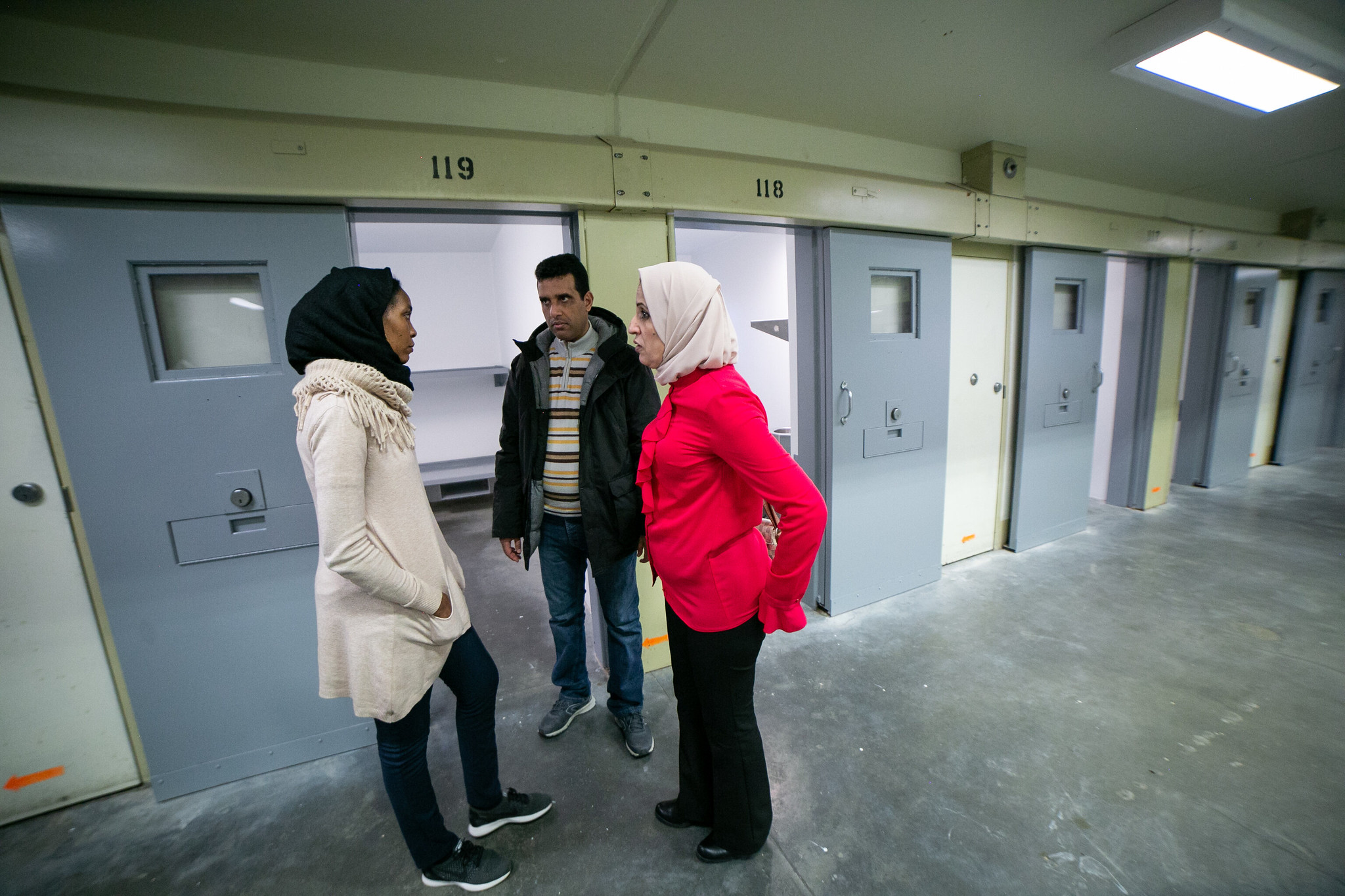
Did you know? Earlier this month, the Virginia Department of Corrections announced that for the fourth consecutive year, Virginia has the lowest recidivism rate of any state in the country for past offenders.
That afternoon, visitors gathered for lunch at the National Center for State Courts – the premier authoritative organization for collaborative court improvement. Vice President of NCSC International, Jeffrey Apperson, discussed his first-hand perspective working alongside courts in many of the visitors’ countries – even identifying a few shared colleagues. Though coming from work environments all over the world, everyone felt right at home.
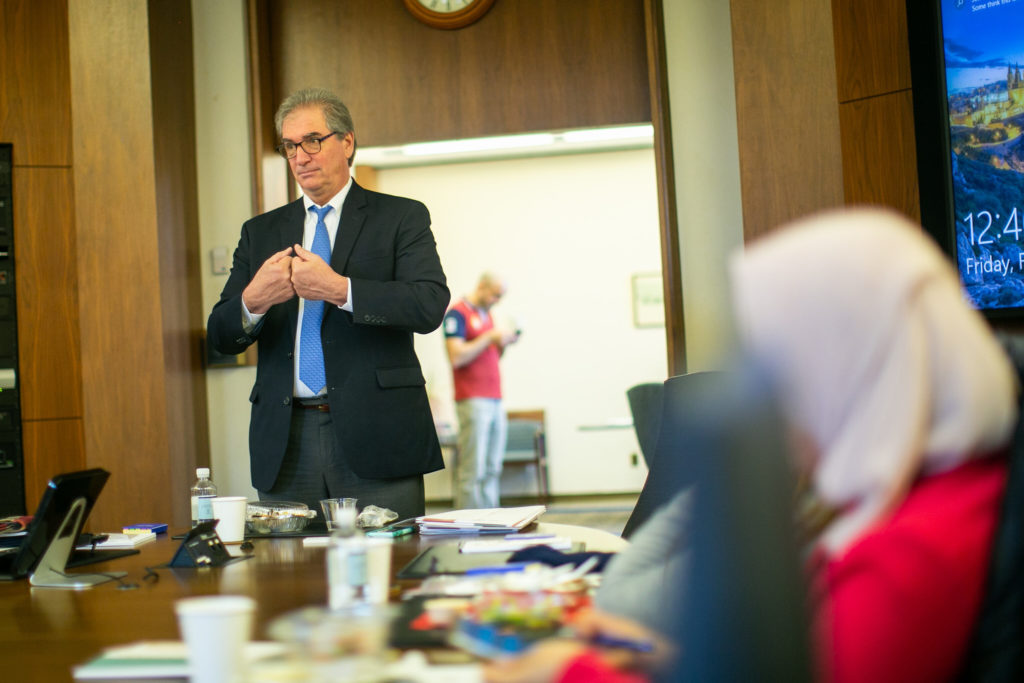
Did you know? Founded in the late 18th century, the William & Mary Law School is known as the oldest school of law in the U.S. and claims multiple U.S. presidents and chief justices as its alumni. While in Williamsburg, IVLP visitors also spent significant time with Professors Christie Warren and Frederic Lederer.
Thomas Jefferson and his Williamsburg-based mentor George Wythe both carried their William & Mary studies with them as they signed the Declaration of Independence in 1776 (read more on Jefferson and Wythe and their role in forming William & Mary’s Law School). Jefferson’s vision in the Declaration also introduced principles later foundational to the International Visitor Leadership Program, writing that we owe “a decent respect to the opinions of mankind”. With emphasis on the word respect, this phrase has been regarded “as elegant a description of Public Diplomacy as you will find” and the driving principle behind U.S. State Department programs like IVLP.
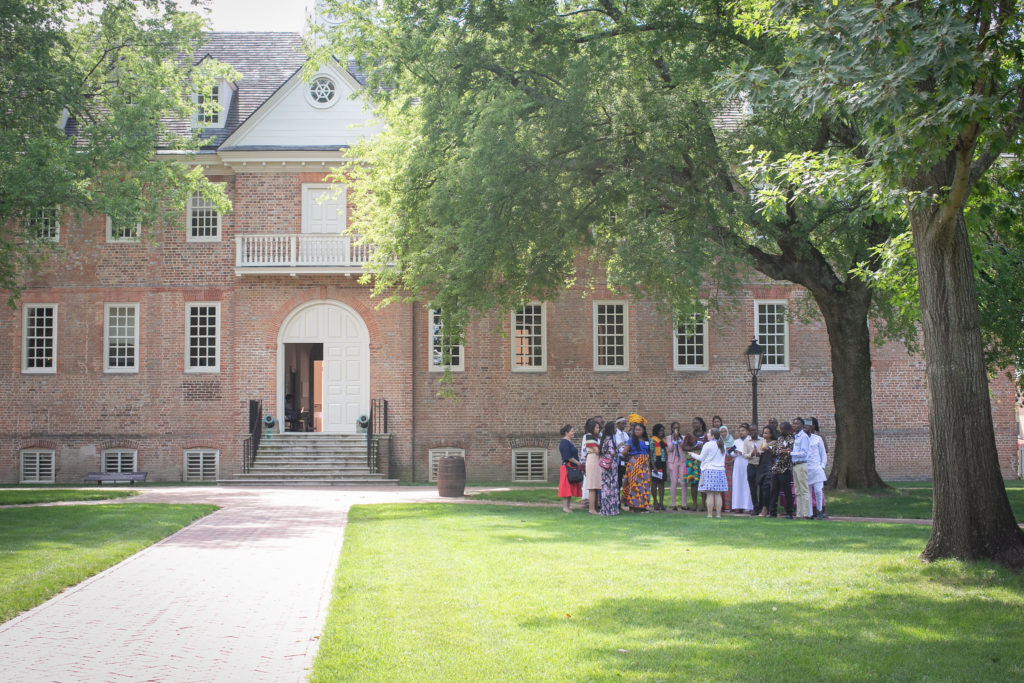
With a centuries-long track record in training up legal experts, the Williamsburg community is a premier example of the ‘Power of Place’ – a central concept to the Presidential Precinct’s mission. As leaders gather in the exact spaces where modern democracy was first born and today’s approaches to rule of law were formalized, they return with a personalized experience that can change the future of our world.
We are grateful to the Reves Center of International Studies at William & Mary, a proven champion of the University’s global engagement, for making so much of this programming possible all year long. It is thanks to them and the community partners mentioned in this article that our small team can deliver this standout region in Virginia to the world.
For a full photo library of this IVLP program, click here.

